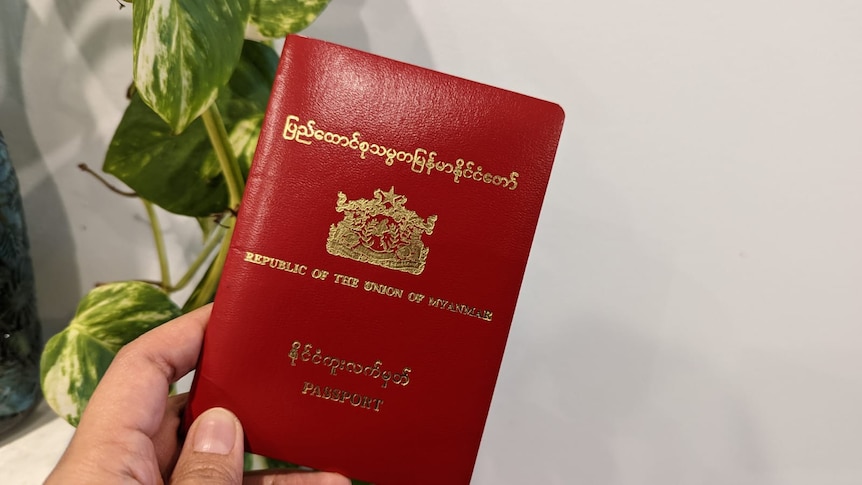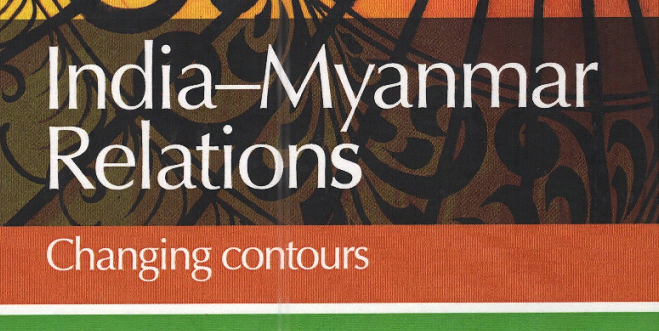Britain And Australia's Double Standard: Selective Sanctions Against Myanmar's Junta

Table of Contents
The Limited Scope of Sanctions
The current Myanmar sanctions imposed by Britain and Australia suffer from a significant limitation: their narrow scope. This selective targeting, while seemingly precise, ultimately undermines their effectiveness.
Targeting Specific Individuals and Entities
The sanctions primarily focus on specific individuals within the junta, neglecting the wider networks and supporting businesses that enable the regime's operations. While some high-ranking military officials have been targeted, many key players remain untouched. This allows the junta to maintain its grip on power, shifting assets and operations through proxy networks.
The challenges in enforcing these sanctions are considerable. The junta is adept at moving assets and operating through proxies, making it difficult to effectively freeze assets and disrupt their operations.
- Insufficient targeting of military-owned conglomerates: Conglomerates like Myanmar Economic Holdings Limited (MEHL) and Myanmar Economic Corporation (MEC) remain largely untouched, despite their significant role in the junta's finances.
- Lack of sanctions on key revenue streams for the junta: Revenue streams from natural resources, such as jade and timber, remain largely unaffected, providing the junta with crucial financial resources.
- Inadequate measures to freeze assets held internationally: The lack of effective international cooperation in freezing assets held in foreign banks undermines the impact of the existing sanctions.
Exemptions and Loopholes
The existence of exemptions and loopholes further weakens the effectiveness of the sanctions. These exemptions, often poorly defined and inconsistently applied, allow continued support for the junta. The lack of transparency in the sanctioning process exacerbates the problem, raising concerns about potential bias and influence peddling.
- Specific business exemptions that continue to allow support for the junta: Certain businesses, deemed “essential,” continue operations, inadvertently propping up the military regime.
- Limited monitoring and enforcement of existing sanctions: Insufficient resources and cooperation hamper effective monitoring and enforcement, creating opportunities for evasion.
- Lack of coordinated efforts with other nations: A lack of a unified, international front weakens the impact of sanctions, allowing the junta to seek alternative funding sources and partners.
The Role of Economic Interests
The selective nature of the Myanmar sanctions reflects a complex interplay between the desire to address human rights abuses and the preservation of economic interests.
Trade Relations and Investment
Britain and Australia maintain significant, albeit diminishing, economic ties with Myanmar. While comprehensive sanctions could cripple the junta's financial resources, they would also disrupt existing trade relations and investments, potentially harming businesses and causing economic instability. This points to a perceived trade-off between human rights and economic gain, a compromise that critics argue prioritizes profit over principles.
- Specific trade deals and investments that could be affected: Existing trade deals and investments in sectors like mining and energy could be threatened by more comprehensive sanctions.
- Economic dependence on Myanmar for specific resources: Some businesses might rely on Myanmar for specific resources or commodities, making them hesitant to support stricter sanctions.
- Lobbying efforts by businesses with interests in Myanmar: Businesses with significant investments in Myanmar may lobby against stronger sanctions, further hindering efforts to exert comprehensive pressure.
The Lack of Comprehensive Economic Pressure
Critics argue that the current selective approach is insufficient. The lack of comprehensive economic pressure allows the junta to continue its human rights abuses without facing crippling financial consequences. This contrasts sharply with the more extensive sanctions regimes imposed on other countries following similar human rights violations, highlighting the perceived double standard.
- Continued human rights violations: The failure to significantly impact the junta's finances allows them to continue their campaign of violence and oppression.
- Strengthening of the military regime: The continued flow of funds strengthens the junta's position, making it harder to achieve a democratic transition.
- Increased instability within Myanmar: The lack of effective pressure contributes to ongoing conflict and instability within Myanmar, exacerbating the humanitarian crisis.
The Human Rights Impact of Selective Sanctions
While targeted sanctions aim to minimize harm to civilians, their actual impact is complex and often detrimental.
Insufficient Protection for Civilians
The unintended consequences of selective sanctions disproportionately affect the civilian population. The junta's economic restrictions, exacerbated by international sanctions, contribute to widespread poverty, inflation, and limited access to essential goods and services. The humanitarian crisis in Myanmar is worsened, not alleviated, by the current approach.
- Lack of humanitarian aid due to sanctions: Sanctions can inadvertently hinder the delivery of essential humanitarian aid, leaving vulnerable populations in dire straits.
- Economic hardship and inflation due to sanctions: Reduced trade and investment contribute to economic hardship and inflation, disproportionately affecting the most vulnerable segments of society.
- Limited access to essential goods and services: Sanctions can restrict access to essential goods and services, impacting healthcare, education, and basic needs.
The Need for a More Holistic Approach
A more holistic approach combining targeted and comprehensive sanctions, coupled with robust international cooperation, is urgently needed. This approach would involve:
- Strengthened international cooperation: Closer collaboration among nations to enforce sanctions and prevent circumvention is critical.
- Increased humanitarian aid efforts: Simultaneous efforts to increase humanitarian aid, ensuring it reaches those most in need, should be prioritized.
- Support for civil society and human rights organizations: Supporting local human rights organizations and civil society groups plays a crucial role in advocating for change and monitoring abuses.
Conclusion
The selective approach to Myanmar sanctions adopted by Britain and Australia represents a double standard, prioritizing economic interests over human rights. While targeted sanctions against specific individuals are a necessary step, they are insufficient to address the multifaceted crisis. A more comprehensive strategy, incorporating broader economic pressure and a strong international cooperation framework, is crucial for effectively countering the junta's actions and protecting the Myanmar people. To effectively combat the ongoing human rights abuses, a shift towards stronger, more holistic Myanmar sanctions is urgently needed. We must move beyond this ineffective approach and demand comprehensive action to end the crisis in Myanmar.

Featured Posts
-
 Atalanta Venezia 0 0 Reporte Del Encuentro Sin Goles
May 13, 2025
Atalanta Venezia 0 0 Reporte Del Encuentro Sin Goles
May 13, 2025 -
 India Myanmar Relations Strengthened Through Shared Cuisine
May 13, 2025
India Myanmar Relations Strengthened Through Shared Cuisine
May 13, 2025 -
 New Heist Movie Sequel Premieres On Amazon Prime This Month
May 13, 2025
New Heist Movie Sequel Premieres On Amazon Prime This Month
May 13, 2025 -
 The Adhd Experience Exploring The Landscape Of Our Adhd Minds
May 13, 2025
The Adhd Experience Exploring The Landscape Of Our Adhd Minds
May 13, 2025 -
 Zaschita Syna Muzh Nadezhdy Kadyshevoy I Gromkiy Skandal O Dolge
May 13, 2025
Zaschita Syna Muzh Nadezhdy Kadyshevoy I Gromkiy Skandal O Dolge
May 13, 2025
